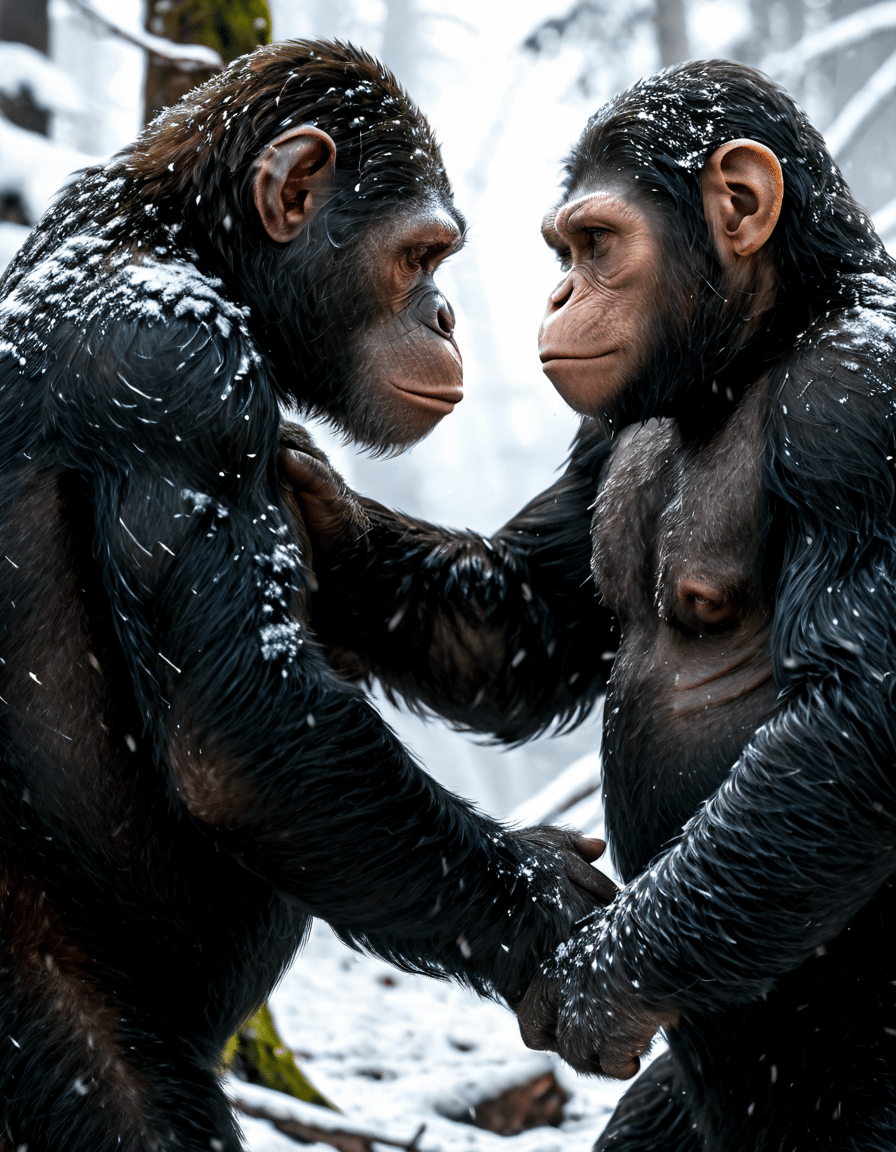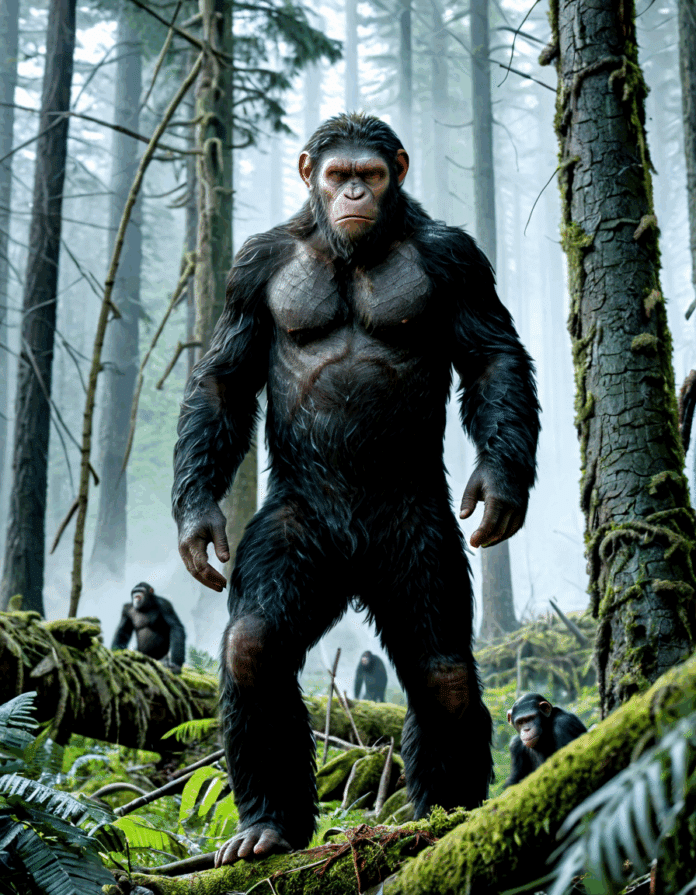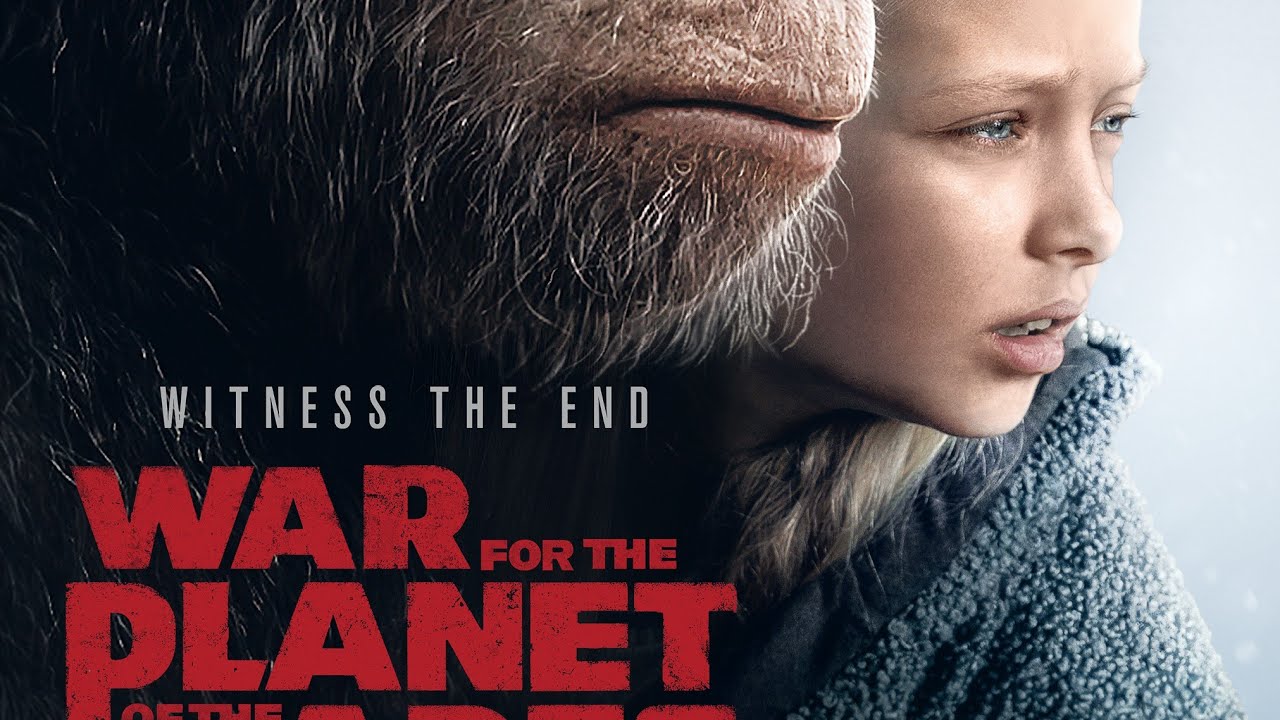The cinematic journey through the Planet of the Apes franchise has captivated countless viewers, blending thrilling action with deep philosophical themes, emotional depth, and stunning visual effects. At the heart of this saga lies War of the Planet of the Apes, a film that serves as both a climactic finale and a poignant exploration of survival against insurmountable odds. This article dives into what makes this film a standout in the series, connecting it to Dawn of the Planet of the Apes and Rise of the Planet of the Apes, while highlighting its key themes surrounding survival, ethical questions, and the nuanced relationship between humans and animals.
The Evolution of Conflict: 5 Key Themes in War of the Planet of the Apes

1. Survival Against All Odds
Survival, in War of the Planet of the Apes, transcends mere existence; it’s an emotional and psychological battle. Caesar, the leading character, embodies this struggle, fighting to keep his humanity intact while facing the animal instincts that war within him. The powerful scenes and dialogues remind us that survival involves dignity and ethical considerations, much like how Caesar rose from oppression in Rise of the Planet of the Apes to lead his people toward freedom.
What makes this theme even more compelling is its portrayal in a world ravaged by conflict. The audience can feel the weight of Caesar’s choices, making survival a topic of deep engagement. Whether it’s through his complex relationships or the layers of responsibility he carries, the film offers a rich tapestry that resonates with the challenges of survival in our own lives.
2. The Complexity of Morality
In War of the Planet of the Apes, the film digs into heavy moral dilemmas. How far should one go for revenge? Woody Harrelson’s Colonel showcases the dark side of humanity, engaging in ruthless tactics against the apes. In contrast, Caesar’s internal struggle invites viewers to question the morality of warfare in a compelling way.
This complexity doesn’t just emerge from individual characters but extends to the broader human-animal conflict. In Dawn of the Planet of the Apes, where a fragile peace between humans and apes hangs precariously due to fear and mistrust, we see echoes of this moral quandary. The film prompts viewers to contemplate deeper ethical issues while delivering action-packed scenes that keep everyone on the edge of their seats.
3. Nature vs. Nurture
The theme of nature versus nurture is even more profound in War of the Planet of the Apes. Caesar’s parental role highlights the impact of trauma on leadership and choices, an echo from the earlier films. As viewers are introduced to Nova, a young ape whose innocence shines bright amidst chaos, we are reminded of the lasting influence of upbringing in a fractured world.
This exploration contributes to the narrative’s depth and relatability. The continuing examinations of how characters are shaped by their experiences—both good and bad—adds layers to this survival story, drawing parallels with our own lives. Understanding that our environments play a crucial role in shaping behavior enables a wider conversation about the virtues of empathy and the power of choice.
4. The Cost of Leadership
Leadership doesn’t come without its costs, and War of the Planet of the Apes emphasizes this truth through Caesar’s heavy burdens. With each decision, he faces the ghosts of loss and revenge, which can transform what it means to lead. Here’s where comparisons with Koba from Dawn of the Planet of the Apes become particularly interesting. Koba’s militant approach sharply contrasts with Caesar’s more thoughtful philosophy, raising essential questions about the type of leadership capable of truly protecting its people.
The weight of leadership in challenging times often leads to tough choices. Through Caesar’s journey, we witness the sacrifices and moral dilemmas that leaders encounter. Whether they’re leading an army of humans or a clan of apes, the heart of War of the Planet of the Apes shows us that real leadership often means choosing the hardest path.
5. The Fragility of Trust
Trust serves as a thread weaving throughout the story of War of the Planet of the Apes. With alliances forming and fracturing, the film makes it evident that trust is often exploited in times of turmoil. Maurice, for example, exemplifies intelligence and compassion, forming vital connections that challenge the narrative of mistrust prevalent in the story.
The absence of trust leads to devastating consequences, both for humans and apes. This sentiment resonates with the earlier films, especially Rise of the Planet of the Apes, where fear divides factions and leads to conflicts. The film resonates with viewers as it illustrates the complexities of trust and relationships while maintaining action that’s hard to look away from.

The Legacy of the Planet of the Apes Saga: Paving the Way for Future Narratives
As we take a long, hard look at War of the Planet of the Apes, it’s clear this is more than just action and drama; it’s a profound commentary on the human condition. The series has redefined what science fiction can achieve, seamlessly marrying thrilling narratives with deeper explorations of survival, ethics, and leadership.
Future installments are poised to harness the emotional depth achieved in this trilogy, offering fresh insights into themes that are relevant today. With contemporary issues—whether social, ethical, or environmental—initing our understanding and experiences, the Planet of the Apes saga provides a rich landscape for conversation.
The intricate survival story, particularly in War of the Planet of the Apes, keeps us questioning our shared humanity and what it means to survive. As we await new tales from this beloved franchise, it’s the multilayered themes that compel us to think deeply about ourselves and the narratives we create about the world around us.
So, whether you’re a die-hard fan or a casual viewer, War of the Planet of the Apes offers something for everyone. It invites dialogue, reflection, and perhaps, just maybe, prompts us all to reconsider how we approach the complex web of survival, trust, and leadership in our own lives.
Further Exploration
So grab your popcorn, buckle up, and let War of the Planet of the Apes lead you on an unforgettable journey.
Fun Trivia and Interesting Facts About War of the Planet of the Apes
The Making of a Masterpiece
“War of the Planet of the Apes” isn’t just a thrill ride; it’s a triumph of modern filmmaking. Did you know that the film used cutting-edge motion capture technology to breathe life into its characters? Andy Serkis, the legendary actor behind Caesar, masterfully crafted his performance through this innovative technique, cementing his legacy in Hollywood. In this film, they really pushed the boundaries of what we can do with visual effects, which is evident when you see the stunning realism of the apes. Pretty cool, right?
Another fascinating tidbit is that the film’s director, Matt Reeves, not only helmed this blockbuster, but he was also integral in shaping its tone and narrative. He was influenced by classic war films, creating a blend of action and emotion that resonates with viewers. The film cleverly reflects real-world themes, blending survival and ethical dilemmas, making it a deep and thought-provoking experience amidst all the action. Isn’t that what great cinema is about?
Behind the Scenes Secrets
An intriguing layer to “War of the Planet of the Apes” is its impressive commitment to detail in the portrayal of ape society. The filmmakers consulted primatologists to ensure that the behaviors and social structures of the apes were grounded in real-life animal behavior. This dedication to authenticity adds a rich layer to the story, making it more than just a battle for survival. Speaking of animal behavior, many fans may not realize that during production, real apes were observed to help create the most accurate representations on screen.
And let’s not forget the powerful score by Michael Giacchino! His haunting music plays a crucial role in setting the film’s emotional tone. The soundtrack pulls viewers deeper into the struggle and pain characters face, making you feel every moment. Giacchino has a knack for creating unforgettable scores that really enhance the film experience, and this one is no exception. With all these elements combined, “War of the Planet of the Apes” stands out not just as a thrilling action film but as a poignant narrative about survival and resilience.



![War for the Planet of the Apes | Official Trailer [HD] | 20th Century FOX](https://www.bestmovienews.com/wp-content/cache/flying-press/4b2624f58378a586ae58553ecd3e46a2.jpg)

![War for the Planet of the Apes | Teaser Trailer [HD] | 20th Century FOX](https://www.bestmovienews.com/wp-content/cache/flying-press/86a4ad5e666ed091591e579c185a395d.jpg)

